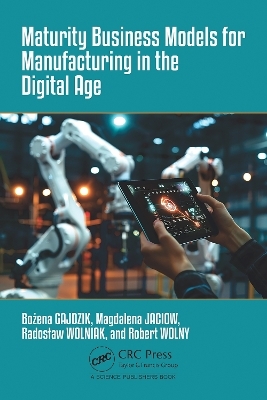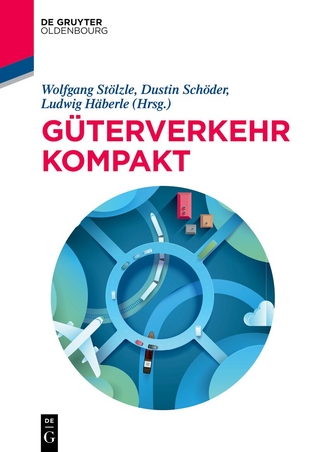
Maturity Business Models for Manufacturing in the Digital Age
CRC Press (Verlag)
978-1-032-72970-1 (ISBN)
- Noch nicht erschienen (ca. Februar 2025)
- Versandkostenfrei
- Auch auf Rechnung
- Artikel merken
The book primarily focuses on the process of industrial transformation in the era of digitalization. It meticulously discusses the processes, technologies, and business models that delineate modern industrial landscapes. A business maturity model is a tool used in organizations to assess how advanced their processes, systems, and procedures are. This model is utilized to identify areas that might require improvements, and then to measure progress in these improvements. The goal is to achieve "maturity", meaning the organization has well-defined, measurable, and repeatable processes.
In the first chapter, the evolutionary trajectory of the manufacturing sector will be traced from the advent of industrialization to the present day, with particular emphasis placed on the shift towards digitalization and automated systems. The historical context will be considered, and future trends extrapolated, providing a comprehensive understanding of the transformation of the manufacturing industry.
The second chapter will present a detailed analysis of business maturity models. Their conceptual underpinnings and practical implications will be discussed. Various business models employed in the current phase of industrial transformation will be critically reviewed, and an argument for a more holistic approach will be made that considers not just technical and economic factors, but also environmental and social impacts.
In the third chapter, a custom-designed research model tailored for assessing the business maturity of manufacturing companies in Poland will be delineated. The methodology will be thoroughly elucidated, encompassing the full spectrum from the conceptualization and operationalization of variables, through to the identification and implementation of suitable research instruments. The progression of the empirical research will be detailed as well.
In the fourth chapter, empirical findings on the maturity models of manufacturing companies in selected Polish industries will be presented. These case studies will not only provide practical illustrations of the theoretical concepts discussed earlier but will also offer industry-specific insights into the automotive, steel, and food industries.
Bożena GAJDZIK, Professor at the Silesian University of Technology, Poland. PhD, Eng. Assoc. Professor. For over 25 years she has been dealing with the issues of industrial transformation, including Industry 4.0. She is employed at the Industrial Informatics Department. She is the author/coauthor of over 630 scientific publications issued at national and international publishers, including 30 books. Scientific interests: production engineering, business management, innovativeness, smart manufacturing, energy consumption, sustainable development, industrial decarbonization, smart factory. She researches the steel market and presents state analyses, industrial trends, industry forecasts and change scenarios. She is ranked: Stanford's Top 2% Scientists, 2022, 2023. Magdalena JACIOW, Professor at the University of Economics in Katowice, Poland. PhD, Assoc. Professor. Scientific fields: In the scope of my scientific work, two major research directions may be identified. The first one is related to market participant behaviors (enterprises/businesses and consumers/e-consumers), and the other one concentrates on the methodology and methods of market and marketing research, and the problem of equivalence (comparability) in international research. She is the author of over 100 scientific publications, including 6 monographs. Radosław WOLNIAK, Professor at the Economics and Informatics Department at the Silesian University of Technology, Poland. For over 20 years he has been dealing with the issues of quality management, including the Industry 4.0. His achievements include over 500 publications issued at national and international publishers, as well as many undertakings and projects implemented in cooperation with the business environment. Scientific interests: quality management, Industry 4.0, methods of quality management, human resource management in industry, innovativeness, smart factory. He is ranked: Stanford's Top 2% Scientists for 2023. Robert WOLNY, Professor at the University of Economics in Katowice, Poland. PhD, Assoc. Professor. Head of the Department of Digital Economy Research. For over 25 years, he has been focusing on issues related to the behavior of market entities, including enterprises and households. He is the author/coauthor of over 160 scientific publications, including 6 monographs. He has served as the leader and participant in numerous scientific and research projects for economic practice. Scientific fields: e-services and behavior of market entities in the digital economy.
Preface. Introduction. Pathways to Modern Industrial Transformation. Business Maturity Models. Measuring the Maturity of Companies. Maturity Models of Manufacturing Companies Results of Own Research in Selected Polish Industries. Conclusion. Index.
| Erscheint lt. Verlag | 28.2.2025 |
|---|---|
| Zusatzinfo | 1 Illustrations, color; 22 Illustrations, black and white |
| Verlagsort | London |
| Sprache | englisch |
| Maße | 156 x 234 mm |
| Themenwelt | Technik |
| Wirtschaft ► Betriebswirtschaft / Management ► Logistik / Produktion | |
| Wirtschaft ► Betriebswirtschaft / Management ► Unternehmensführung / Management | |
| ISBN-10 | 1-032-72970-8 / 1032729708 |
| ISBN-13 | 978-1-032-72970-1 / 9781032729701 |
| Zustand | Neuware |
| Haben Sie eine Frage zum Produkt? |
aus dem Bereich


